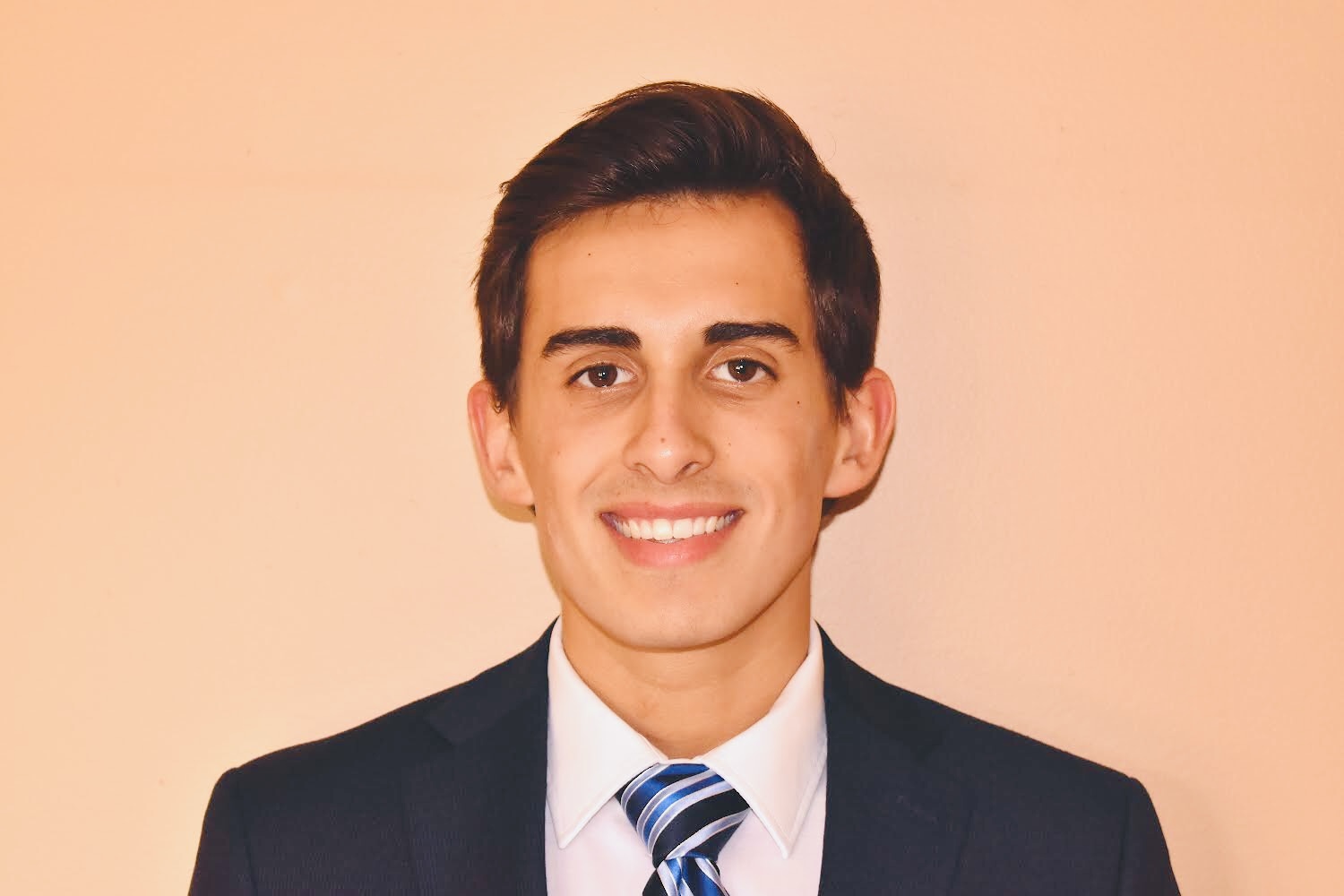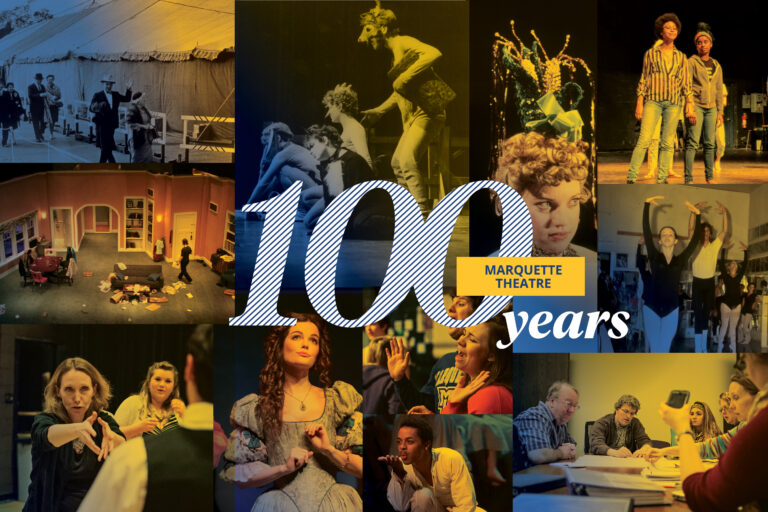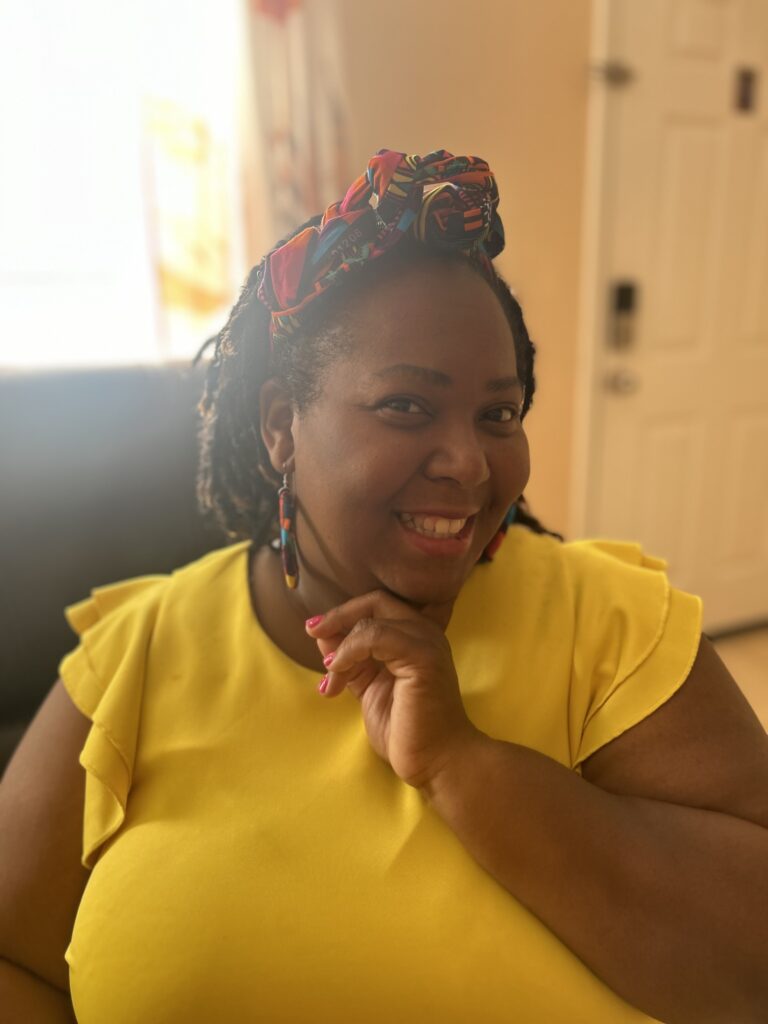Even before graduating from the University of Dayton in 2022 with a degree in economics, Derek Olson was looking for graduate programs to further his expertise.
He applied to 10 different graduate schools, including prestigious programs like Boston College, Boston University and Clemson. One thing made Marquette Business stand out from that crowd.
“I was reaching out to all these institutions trying to get information about them and the director of Marquette’s program, Dr. (Nicholas) Jolly, was the only one to personally respond to me and highlight how it could benefit me to enroll.
That really made me feel welcome within the university. I think we had four meetings before I even accepted the offer to come to Marquette.”
Now in his second year in Marquette’s Master of Science in Applied Economics program, Olson answers a few questions about his experience:
You’re working on a research project as part of your degree. What is it and why did you choose it?
I’ve always been interested in labor economics. My dad is a union plumber, and I grew up interested in the difference in outcomes between union and non-union workers.
The research I’m doing focuses on the individual effect of being laid off, which is usually a negative signal to potential employers that decreases your chances of being hired. However, I’m looking into whether that negative signal effect is lessened in a recession.
I want to home in on how different groups of workers experience this phenomenon differently in terms of not just employment, but earnings too.
What are some of the skills you’ve learned in the MSAE program that you think will be beneficial in the future?
One of the skills you learn doing this type of work is you get really comfortable with using data and different programming languages.
All of these skills really benefit you because they make you a more marketable candidate for different positions. I really enjoy working with data, so a lot of the positions I’ve applied for are data analyst and data science jobs. So many jobs in that realm require you to take a bunch of numbers, simplify them and derive meaning from them, which is what I’ve done while pursuing the MSAE.
Is there a particular professor you’ve worked with who you’d recommend to others?
I have really enjoyed learning under Dr. Jolly. He is the labor economics professor, and I’ve also had him for applied econometrics and he’s my adviser on my professional project.
I’ve gotten to work a lot with him, and one of the nice things about his classes is he lets students in his classes pick different topics that we want to focus on. Recently, students have expressed interest in learning about gender and race in the labor market and being able to have a mix of economic theory and relevant social issues has been an engaging experience. Being able to pick topics we are interested in makes the class time fly by.
You enrolled in the Graduate School of Management right after getting your bachelor’s degree. What do you think were the benefits of doing that versus going into the business world first and then coming back?
I think when you’re an undergraduate, you get into a groove of focusing on school and doing homework, and all that changes when you start working. I’ve done full-time internships over the summer while also balancing courses, and even with a light course load, you sometimes don’t have the motivation to get work done.
Being able to transition right into a graduate program and staying with the pace I established at Dayton is something that was valuable to me.
Above all else, a graduate degree gives you more options to have that first position be something you’re really interested in instead of taking something a little more generic.
What are some of the professional opportunities that will be available to you once you graduate?
There’s a wide range. If you’re interested in policy, you can focus on working in the public sector; there are always governmental organizations looking for people who can analyze data. And then there’s obviously a ton of private sector work for economists, as well; I’m going to be starting with Uline this summer.
Recently, there’s been a shift in the labor market toward people who are skilled at working with data since everything is so data driven. That’s the same for economics grads, MBA grads and so many others. People come out of these programs understanding how to work with data and how to solve different problems within the business world.
If you’re interested in learning more about Graduate School of Management programs, please use this form to request information.



